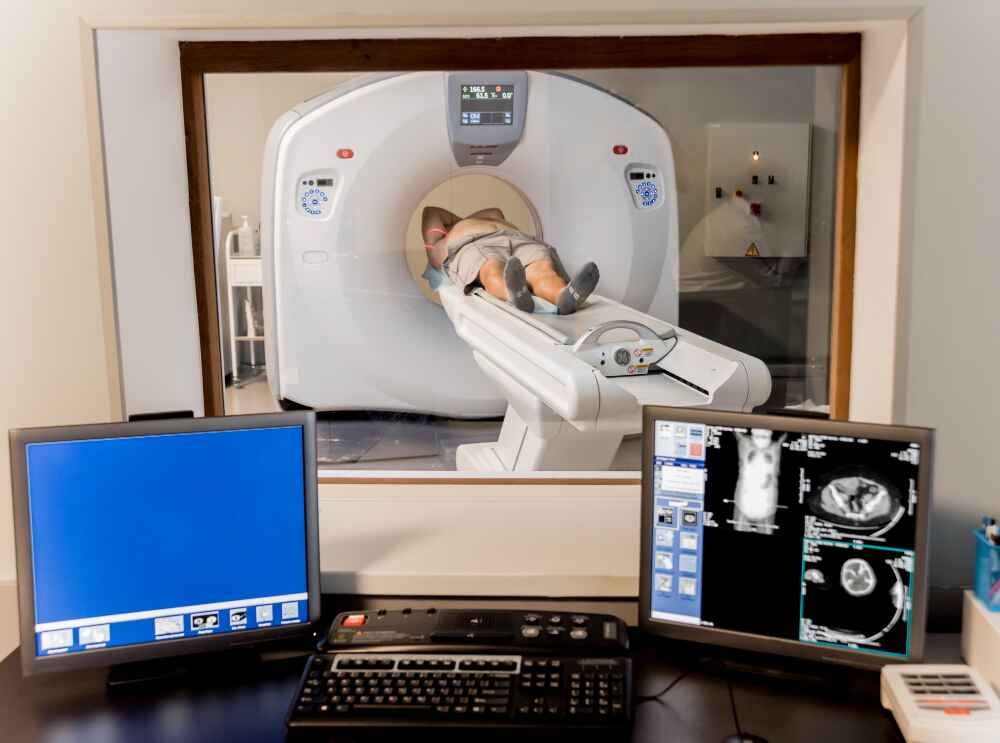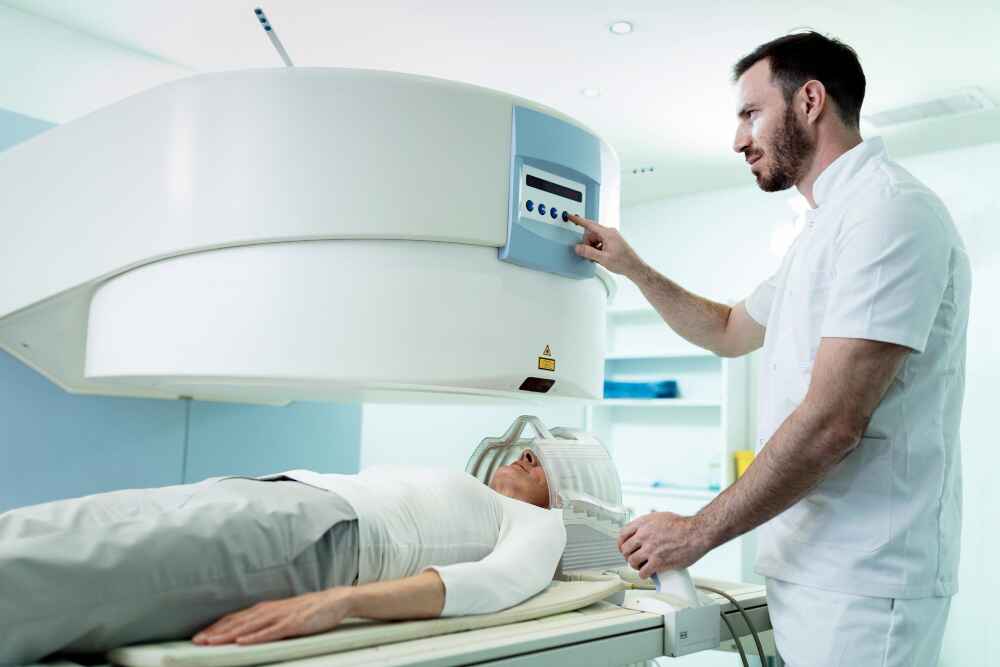Book on Whatsapp
9892101616
Why Regular ECG Check-Ups Are Essential for Heart Health
Radiology
Tue Aug 13 2024
It is essential for every human to go through frequent health check-ups and have a clear idea about their body and health functions. Basic Health Checkup Packages include numerous test procedures covering vast portions of the body and internal organs. For most adults and certain children, monitoring heart health becomes fundamental either to assess the gravity of the issue or simply as a preventive measure.
Lately, looking at the global figures and stats, it is quite clear that heart problems and diseases have been increasing fast and they have been life-threatening in many cases leading to death. You can contact a Manipal TRUtest Near You and get you and your family checked for further information on your health and living a healthy life ahead.
How Does The ECG Test Help Determine Heart Health?
The ECG test is the ultimate diagnostic tool for learning about heart health and issues. The machine uses tiny electrodes which are to be placed over various parts of the body using wires. The machine measures the electrical activities of the heart muscles through these wired electrodes. Manipal Full Body Checkup may include ECG as a way to assess the heart health of a person.
The ECG test results are incredible for preventive care as well as monitoring heart conditions and preparing for a quick treatment plan. From monitoring the rhythm of the heart to potential heart attacks, Echocardiogram is the ultimate tool for determining serious health hazards in time. If you visit your doctor with chest pain or other complications of the heart area, they will immediately recommend you undergo an ECG test from any reputed Manipal TRUtest Laboratories near you.
There are a few types of ECG tests that are conducted for acquiring specialized results and doctors will recommend the one that gives them the inside information they are looking for. Patients do not need to prepare much for an ECG program, only the specified instructions by your healthcare provider are to be followed before the test. In the case of Manipal Lab Tests, especially, ECG, you will be provided with hospital clothing to change in, and the electrodes will be attached to your body by the staff with adhesive tapes.
Importance Of Frequent Heart Check-Ups
By observing the heart functionality frequently, it gets easier to identify heart abnormalities immediately by comparing them with previous records. At Manipal Labs, we prioritize frequent heart check-ups and emphasize the benefits of having a healthy heart for an entire lifetime. Here are a few legitimate reasons for you to consider frequent heart check-ups and understand the long-term importance of such a step.
Identifying the Problem At The Right Time
Whether you are Manipal TRUtest or any other diagnostic center, the purpose is to acquire accurate reports as soon as possible. It is even more crucial when dealing with the matter of heart, as identifying the problem at the right time produces a better chance of complete recovery.
Preventing Complications By Early Detection
An ECG test may be included in the Manipal Health Checkup plan if asked by the patient or recommended by a healthcare provider. Early detection of heart-related problems can be effectively tackled and prevent them from complicating to promote further illness.
Monitoring & Managing The Heart When Needed
The basic function of the ECG machine is to track the heart's electrical activity and present a report on paper. The device is instrumental in monitoring the heart conditions of patients with known heart diseases and devising further treatment plans.
Conclusion
Most Health Care Packages are designed to rule out common health complications and detect potential problems affecting the future. The heart is a vital human organ, and tracking its health is crucial to living a longer life and saving you from not just life-threatening risks but also unprecedented future medical expenses.
Related Tests
Related Packages
Related Blogs

Radiology
The Importance of MRI Scans in Detecting Health Issues
Medical imaging has transformed healthcare, and MRI (Magnetic Resonance Imaging) stands out as one of the most important tools for early and accurate diagnosis. An MRI scan uses powerful magnets and radio waves to create detailed images of the inside of the body, without the use of radiation. This helps doctors identify health problems quickly and plan the best treatment for their patients.
What Makes MRI Scans So Valuable?
Unlike X-rays or CT scans, MRI provides highly detailed pictures of soft tissues, organs, and even the nervous system. It is especially useful in detecting issues in the brain, spine, joints, heart, and internal organs. When symptoms are unclear, an MRI can uncover hidden problems that other scans might miss. This makes it a trusted choice for doctors who want a clearer view of what’s happening inside the body.
At Manipal TRUtest, advanced MRI services ensure that patients get accurate and reliable results quickly, helping them start treatment without unnecessary delays.
Common Health Issues Detected by MRI
MRI scans are used to diagnose a wide range of conditions, such as:
- Brain and spinal cord issues: MRI is excellent at detecting brain tumors, strokes, multiple sclerosis, and spinal cord injuries.
- Joint problems: If you have unexplained joint pain, an MRI can show damage to ligaments, cartilage, and muscles.
- Heart conditions: Doctors use MRI to assess the structure and function of the heart, helping to diagnose heart diseases early.
- Organ health: MRI scans can spot liver diseases, kidney problems, and abnormalities in other internal organs.
By offering clear images, MRI helps in creating the right treatment plan, making recovery faster and smoother.
When Should You Consider an MRI?
Doctors usually recommend an MRI when they need a deeper understanding of a health issue. You may need an MRI if:
- There is a need to monitor known conditions like tumors or injuries.
- You experience unexplained symptoms that cannot be diagnosed with other imaging tests.
- You have persistent headaches, seizures, or dizziness.
- You are suffering from chronic joint or back pain.
Choosing a trusted center like Manipal TRUtest for your MRI scan ensures that you are in safe hands, receiving quality care at every step.
How to Prepare for an MRI Scan
Preparing for an MRI scan is usually rather straightforward. You may be asked to remove metal items such as jewellery before the scan. If you have any metal implants or pacemakers, let the technician know beforehand. You may receive a contrast dye to enhance the imaging during the scan. The MRI scan is painless, and you will usually be able to go home shortly thereafter.
At Manipal TRUtest , the medical team guides you through every step, making sure you are comfortable and well-informed before and after the procedure.
The role of MRI scans in modern medical diagnosis is substantial. An MRI scan has the potential to find serious health issues quickly and even save lives. If it is a brain condition, a heart issue, or pain with an unknown origin, an MRI provides the clarity needed to move forward with confidence. Why not trust a reliable service to perform the MRI? Take the time to be proactive with your health, and go to Manipal TRUtest for accurate MRI imaging.

Radiology
When and Why You Might Need an Abdominal Scan
The abdomen is where important organs such as the liver, kidneys, pancreas, gallbladder, and intestines all reside. When something doesn't feel right in this area, doctors often recommend an abdominal scan to figure out what is going on inside the abdomen. These scans are safe, quick, and can help provide important information for the next step in your path to better health.
What is an Abdominal Scan?
An abdominal scan is an imaging test that allows doctors to view organs and tissues inside the belly. It can be done by different procedures such as ultrasound, CT scan and MRI. Each technique has its own benefits, depending on what the doctor is looking for. The scans are quick and painless, and can sometimes identify problems early on before they have developed into symptoms.
When Might You Need an Abdominal Scan?
There are many reasons a doctor might recommend an abdominal scan. Some of the most common situations include:
1. Unexplained Pain
If you are experiencing pain in your abdomen that does not go away, a scan can help identify the cause. It could be due to gallstones, liver issues, infections or kidney stones,
2. Digestive Problems
Persistent issues like nausea, vomiting , and changes in bowel habits may require a closer look. An abdominal scan can reveal if there are any blockages, swelling, orabnormalities in the digestive organs.
3. Injury or Trauma
After an accident or a fall, an abdominal scan is often done to check for internal bleeding and organ damage. Even if there are no external injuries, it is important to ensure that the internal organs are safe.
4. Suspected Infections
Infections in the abdomen, such as a reddened appendix or an abscess, which can be dangerous if not treated quickly. A scan helps detect these circumstances so that the right treatment can begin without delay.
5. Monitoring Existing Conditions
For people already diagnosed with conditions like liver disease, kidney problems, and cancer, regular abdominal scans are important. They help monitor the disease’s progress and assess how well the treatment is working.
6. Checking for Tumors or Growths
An abdominal scan can spot abnormal growths like tumors, lumps, and cysts. Early detection makes it easier to manage these conditions effectively.
Different Types of Abdominal Scans
Depending on the situation, your doctor may choose one of the following scans:
- Ultrasound: Common for checking gallbladder, liver, and kidneys. It’s quick and uses sound waves instead of radiation.
- CT Scan: Provides more detailed images and is often used to spot injuries, infections, or tumors.
- MRI Scan: Gives very detailed pictures, especially useful for soft tissues and blood vessels.
Each scan has its own benefits, and your healthcare provider will decide which one suits your needs best.
How to Prepare for an Abdominal Scan
Preparation depends on the type of scan. For ultrasounds, you might be asked to fast for a few hours beforehand. For CT or MRI scans, you may need to drink a contrast liquid or receive an injection to make certain areas clearer. Always follow the instructions given by the healthcare team to ensure accurate results.
An abdominal scan is a powerful tool that helps doctors see inside your body without surgery. Whether it’s unexplained pain, digestive troubles, or simply monitoring an ongoing condition, these scans play a key role in keeping you healthy. If your doctor recommends an abdominal scan, it is a step towards understanding your health better and taking timely action when needed.

Radiology
How Mammography Helps in Monitoring Breast Health
Mammography is an important and special medical imaging modalities. It plays a crucial role in examining the breast. Most importantly, it is used for the early detection and diagnosis of most breast diseases; more importantly, the diseases that fall under this category are breast cancers. Knowing the advantages and significance of this type of exam can enable people to attend to their routine screenings for better health.
1. Detection of Breast Cancer
It can detect breast cancer before any symptoms like lumps and soreness appear, such as pain. The chances of treatment being successful increase immensely with early detection and are the cases of mortality linked to breast cancer are greatly reduced.
2. Screening in High-Risk Individuals
Regular mammograms are often recommended for women with a family history of breast cancer or with other risk factors. Routine screening will help monitor any changes in breast tissue and catch abnormalities as early as possible.
3. Monitoring Changes in Breast Tissue
Mammography can be applied for monitoring slight changes in breast tissue over time. A comparison of previous and present mammograms will help diagnose any unusual developments and determine whether further testing is required.
4. Differentiating Between Benign and Malignant Tumors
Not always might one feel a lump in one's breast; it might not be cancerous. Mammograms help differentiate benign cysts from malignant tumors, and unnecessary invasive measures can be avoided while timely intervention is done when possible.
5. Evaluating Treatment Response
Mammograms serve a key role for patients undergoing treatment for breast cancer to judge cancer and treatment progress. Periodic imaging will give the physician input on tumor shrinkage so decisions can be made about ongoing treatment.
6. Screening for Asymptomatic Cases
In fact, a lot of cases of breast cancer begin to occur without showing any noticeable symptoms in their primary stages. Mammography makes it possible to detect such hidden cases early, so that medical interventions can take place before the cancer becomes advanced.
7. Reduce Mortality Rates
It has been proven that regular mammography screenings lower breast cancer mortality rates. Early diagnosis results in less aggressive treatment options that increase survivability and recovery chances.
8. An Option for Non-Invasive Screening
Mammography is a non-invasive method of delving into the breast system and providing details without requiring surgery. Although there may be some slight discomfort for certain women experiencing the process, the benefits of it all outweigh the few moments' inconvenience.
9. Promote Preventive HealthBeliefs
Regular mammograms bring attention toward breast health and encourage women toward prevention. Health care providers usually amplify lifestyle modifications, self-examinations, as well as routine screening. This is part and parcel of a more holistic approach to breast health.
10. Enhancing Personal Treatment Programs
The combination of mammography results and other diagnostic means will allow doctors to create a personalized treatment plan for the patient. Assessing tumor size location and type will be more specific, thus patient-complacent medical care for each individual.
Conclusion
Mammography is the clearest tool for determining the health of breasts and tells one much about any possible problem within early times. Regular screening, especially among high-risk people, constitutes an excellent measure toward good health and reduced mortality from breast cancer. The women have to consult the health practitioners about the most appropriate schedule for screening regarding breast health management.
